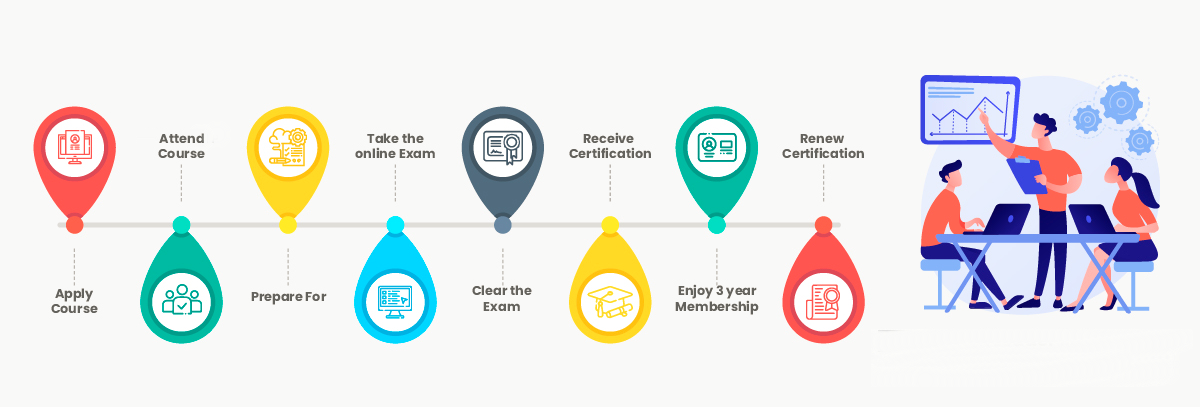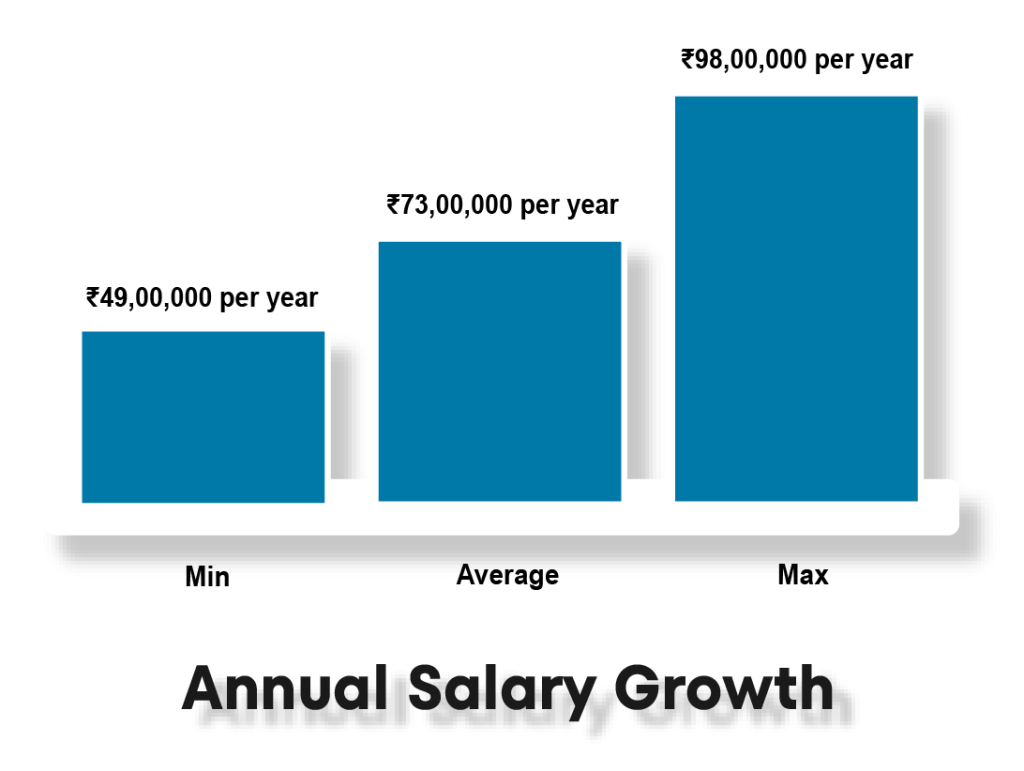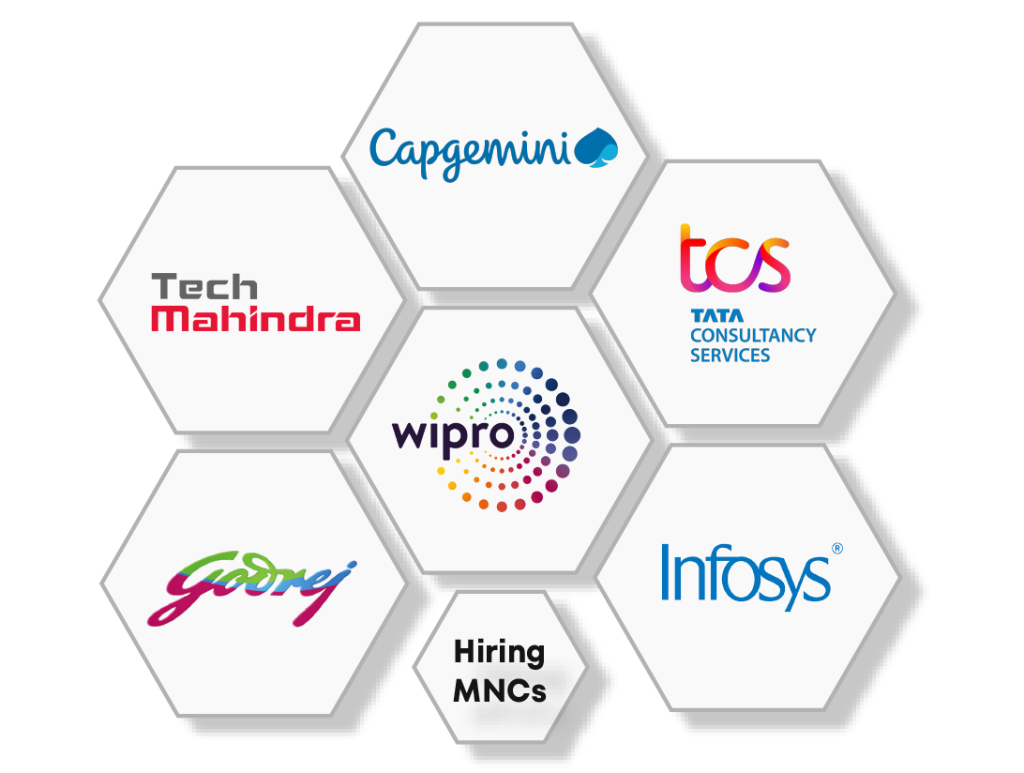
The Sustainability Management training program by Sambodhi and Education Nest aims to prepare future executives and managers to navigate the dynamic global ecosystem. By understanding the significance of socio-ecological factors and embracing sustainability principles, participants can create long-term value through sustainable products and services. Aligned with the United Nations’ Sustainable Development Goals (SDGs) in Agenda 2030, the program acts as a catalyst for businesses to transform operations and seize sustainable development opportunities. Graduates will be equipped to integrate sustainability across the value chain, leading to positive impacts on society, the environment, and their organizations. Application Deadline: September 08, 2023.
Application Deadline: Sept 08, 2023



Instructor-led Sustainability Management live online Training Schedule
July 1st – Weekend
September 16th – Weekend
Sambodhi and Education Nest offer a comprehensive Sustainability Management Training Course. With live project-based training, aspiring candidates can learn from industry experts with 10+ years of experience. Our instructors have developed unique teaching styles to ensure students acquire the necessary skills and knowledge. The course covers various aspects of sustainability management, including environmental stewardship, social responsibility, and economic viability. Participants gain hands-on experience through practical assignments and real-world case studies, understanding how to integrate sustainability principles into organizational strategies. Upon completion, students will be equipped with the expertise to drive sustainability initiatives, navigate regulatory frameworks, and contribute to the triple bottom line. Join our program and make a positive impact on the planet while building a rewarding career in sustainability management.
Why enroll for Sustainability Management Certificate Training Course?


The global green technology and sustainability market size is expected to grow from $12.13 billion in 2022 to $15.23 billion in 2023 at a compound annual growth rate (CAGR) of 25.6%.

The demand for Sustainability Management professionals is rising in industries and MNCs due to environmental awareness, regulations, and the benefits of long-term sustainable practices.

Sustainability professionals earn an average salary of $60,000 to $120,000 per year, with higher pay for senior-level or management roles.
Sustainability Management Training Course Benefits
Sambodhi and Education Nest’s Sustainability Management Training Course offers numerous benefits to participants. It provides a comprehensive understanding of sustainability principles, enabling professionals to navigate the complexities of the modern business landscape. Through knowledge of sustainability science, participants can assess and manage their organizations’ environmental, social, and economic impacts, making informed decisions and implementing sustainable practices across functions. The course also enhances skills in sustainable business management, including risk assessment, stakeholder engagement, and strategic planning. By fostering a broader perspective on the role of businesses in addressing global sustainability challenges, the course encourages collaboration and innovation. Ultimately, it empowers professionals to drive positive change, contribute to a sustainable future, and gain a competitive edge in the evolving business environment.

Annual Salary

Hiring Companies
Want to become a Sustainability Management Professional.
Why Sustainability Management Certificate Training Course from Education Nest






Sustainability Management Skills Covered
Sustainability Management Training Course Syllabus
1.1 Understanding Sustainability
1.2 Sustainable Business Practices
1.3 Environmental Impact Assessment
2.1 Supply Chain Sustainability
2.2 Sustainable Procurement
2.3 Logistics and Transportation
3.1 Energy Efficiency and Renewable Energy
3.2 Waste Management
3.3 Water Management
4.1 Social Impact Assessment
4.2 Diversity and Inclusion
4.3 Stakeholder Engagement and Communication
5.1 Sustainable Design and Innovation
5.2 Sustainable Product Development
5.3 Eco-Labelling and Certification
6.1 Sustainability Performance Measurement
6.2 Sustainability Reporting and Assurance
6.3 Continuous Improvement and Integration
1.1 Understanding Sustainability
1.2 Sustainable Business Practices
1.3 Environmental Impact Assessment
2.1 Supply Chain Sustainability
2.2 Sustainable Procurement
2.3 Logistics and Transportation
3.1 Energy Efficiency and Renewable Energy
3.2 Waste Management
3.3 Water Management
4.1 Social Impact Assessment
4.2 Diversity and Inclusion
4.3 Stakeholder Engagement and Communication
5.1 Sustainable Design and Innovation
5.2 Sustainable Product Development
5.3 Eco-Labelling and Certification
6.1 Sustainability Performance Measurement
6.2 Sustainability Reporting and Assurance
6.3 Continuous Improvement and Integration
Sustainability Management Training Projects

Sustainability Management projects in the retail industry play a crucial role in promoting environmentally and socially responsible practices. Retail companies are increasingly recognizing the importance of integrating sustainability into their operations to reduce their environmental impact, conserve resources, and address social issues. These projects focus on initiatives such as implementing energy-efficient technologies, optimizing supply chain logistics, reducing waste and packaging, promoting ethical sourcing, and engaging in community outreach. By embracing sustainability, retail companies can enhance their brand reputation, attract environmentally conscious consumers, and drive positive change in the industry. These projects serve as catalysts for transforming the retail sector into a more sustainable and responsible industry.

Sustainability Management projects play a vital role in the IT industry as organizations strive to minimize their environmental impact and promote sustainable practices. In this sector, projects focus on reducing energy consumption, implementing efficient data center practices, adopting renewable energy sources, and managing electronic waste responsibly. Sustainable IT projects also emphasize the reduction of carbon emissions, implementing green supply chain practices, and promoting eco-friendly technology solutions. These initiatives not only align with environmental goals but also contribute to cost savings and improve corporate social responsibility. By integrating sustainability into their operations, the IT industry can lead the way in creating a greener and more sustainable future.
Sustainability Management Training Description
The Sustainability Management course equips individuals with the knowledge and skills necessary to address environmental and social challenges in various industries. Participants learn about sustainable practices, corporate social responsibility, environmental stewardship, and regulatory compliance. The course covers topics such as sustainable development, resource management, climate change mitigation, and stakeholder engagement. Through practical exercises and case studies, students gain a holistic understanding of sustainability principles and their practical application. Graduates of this course are well-prepared to drive sustainability initiatives, contribute to sustainable business strategies, and make a positive impact on the environment and society.
The objectives of the Sustainability Management course are as follows:
There are several compelling reasons to learn the Sustainability Management course:
Address Global Challenges: Gain the knowledge and skills to contribute to addressing pressing global challenges such as climate change, resource depletion, and social inequalities.
Environmental Stewardship: Understand how to effectively manage resources, reduce environmental impact, and promote sustainable practices for a greener future.
Social Responsibility: Learn how to integrate social considerations into business strategies, fostering inclusivity, and contributing to community development.
Regulatory Compliance: Stay updated with evolving environmental regulations and standards, ensuring compliance and minimizing legal risks for organizations.
Cost Savings: Sustainable practices often lead to cost savings through energy efficiency, waste reduction, and streamlined processes.
Enhance Reputation: Embrace sustainability and enhance organizational reputation by demonstrating a commitment to environmental and social responsibility.
Stakeholder Expectations: Meet the expectations of customers, investors, employees, and communities who increasingly demand sustainable business practices.
Career Opportunities: Sustainability management skills are in high demand across industries, offering diverse career paths and opportunities for professional growth.
Innovate and Lead: Develop a mindset for innovation, creativity, and leadership in driving sustainable solutions and influencing positive change.
Contribute to a Better Future: Make a meaningful impact on the planet and society by promoting sustainable practices and creating a more sustainable and equitable future.
The course is designed for working professionals passionate about bringing sustainability in their business operations.
The pre-requisites for the Sustainability Management course are as follows:
Basic Understanding of Environmental Concepts: Familiarity with environmental concepts and issues, such as climate change, resource management, and environmental impact assessment.
Knowledge of Business Principles: Understanding of basic business principles, including organizational structures, operations, and decision-making processes.
Strong Communication Skills: Effective written and verbal communication skills to articulate sustainability concepts, engage stakeholders, and present findings.
Analytical and Critical Thinking Skills: Ability to analyze complex information, think critically, and solve problems related to sustainability challenges.
Interdisciplinary Perspective: Appreciation for interdisciplinary approaches and the ability to integrate knowledge from multiple fields, such as environmental science, economics, and social sciences.
Motivation and Commitment: Dedication and a genuine interest in sustainability issues, as well as the commitment to learn and contribute to sustainable practices.
Basic Computer Skills: Proficiency in using computers, internet research, and basic software applications to conduct research and present findings.
Sambodhi and Education Nest offer a range of Project Management courses to cater to different needs and skill levels. In addition to the Sustainability Management course, they provide the following courses:
Project Management Professional (PMP): This course is designed for experienced project managers who want to obtain the globally recognized PMP certification. It covers the complete project management lifecycle, including initiating, planning, executing, monitoring, controlling, and closing projects.
Project Risk Management: This course delves into the various aspects of project risk management, including risk identification, assessment, mitigation, and monitoring. Participants learn how to effectively manage risks to ensure project success.
Program Management Professional (PgMP): The PgMP course focuses on advanced program management principles, providing professionals with the knowledge and techniques required to manage complex programs and achieve strategic business objectives.
Agile Project Management: This course focuses on Agile project management methodologies, such as Scrum, Kanban, and Lean. Participants learn how to apply Agile principles and practices to enhance project delivery and adapt to changing requirements.
Microsoft Project: This course provides training on using Microsoft Project, a popular project management software. Participants learn how to create project plans, schedule tasks, manage resources, and track progress using this powerful tool.
Primavera P6: This course focuses on Primavera P6, a leading project management software widely used in industries like construction, engineering, and manufacturing. Participants learn how to plan, manage, and control projects using Primavera P6.
These courses offer valuable knowledge and skills for professionals seeking to enhance their project management capabilities and achieve success in their projects.
The Sustainability Management course equips individuals with the knowledge and skills necessary to address environmental and social challenges in various industries. Participants learn about sustainable practices, corporate social responsibility, environmental stewardship, and regulatory compliance. The course covers topics such as sustainable development, resource management, climate change mitigation, and stakeholder engagement. Through practical exercises and case studies, students gain a holistic understanding of sustainability principles and their practical application. Graduates of this course are well-prepared to drive sustainability initiatives, contribute to sustainable business strategies, and make a positive impact on the environment and society.
The objectives of the Sustainability Management course are as follows:
There are several compelling reasons to learn the Sustainability Management course:
Address Global Challenges: Gain the knowledge and skills to contribute to addressing pressing global challenges such as climate change, resource depletion, and social inequalities.
Environmental Stewardship: Understand how to effectively manage resources, reduce environmental impact, and promote sustainable practices for a greener future.
Social Responsibility: Learn how to integrate social considerations into business strategies, fostering inclusivity, and contributing to community development.
Regulatory Compliance: Stay updated with evolving environmental regulations and standards, ensuring compliance and minimizing legal risks for organizations.
Cost Savings: Sustainable practices often lead to cost savings through energy efficiency, waste reduction, and streamlined processes.
Enhance Reputation: Embrace sustainability and enhance organizational reputation by demonstrating a commitment to environmental and social responsibility.
Stakeholder Expectations: Meet the expectations of customers, investors, employees, and communities who increasingly demand sustainable business practices.
Career Opportunities: Sustainability management skills are in high demand across industries, offering diverse career paths and opportunities for professional growth.
Innovate and Lead: Develop a mindset for innovation, creativity, and leadership in driving sustainable solutions and influencing positive change.
Contribute to a Better Future: Make a meaningful impact on the planet and society by promoting sustainable practices and creating a more sustainable and equitable future.
The course is designed for working professionals passionate about bringing sustainability in their business operations.
The pre-requisites for the Sustainability Management course are as follows:
Basic Understanding of Environmental Concepts: Familiarity with environmental concepts and issues, such as climate change, resource management, and environmental impact assessment.
Knowledge of Business Principles: Understanding of basic business principles, including organizational structures, operations, and decision-making processes.
Strong Communication Skills: Effective written and verbal communication skills to articulate sustainability concepts, engage stakeholders, and present findings.
Analytical and Critical Thinking Skills: Ability to analyze complex information, think critically, and solve problems related to sustainability challenges.
Interdisciplinary Perspective: Appreciation for interdisciplinary approaches and the ability to integrate knowledge from multiple fields, such as environmental science, economics, and social sciences.
Motivation and Commitment: Dedication and a genuine interest in sustainability issues, as well as the commitment to learn and contribute to sustainable practices.
Basic Computer Skills: Proficiency in using computers, internet research, and basic software applications to conduct research and present findings.
Sambodhi and Education Nest offer a range of Project Management courses to cater to different needs and skill levels. In addition to the Sustainability Management course, they provide the following courses:
Project Management Professional (PMP): This course is designed for experienced project managers who want to obtain the globally recognized PMP certification. It covers the complete project management lifecycle, including initiating, planning, executing, monitoring, controlling, and closing projects.
Project Risk Management: This course delves into the various aspects of project risk management, including risk identification, assessment, mitigation, and monitoring. Participants learn how to effectively manage risks to ensure project success.
Program Management Professional (PgMP): The PgMP course focuses on advanced program management principles, providing professionals with the knowledge and techniques required to manage complex programs and achieve strategic business objectives.
Agile Project Management: This course focuses on Agile project management methodologies, such as Scrum, Kanban, and Lean. Participants learn how to apply Agile principles and practices to enhance project delivery and adapt to changing requirements.
Microsoft Project: This course provides training on using Microsoft Project, a popular project management software. Participants learn how to create project plans, schedule tasks, manage resources, and track progress using this powerful tool.
Primavera P6: This course focuses on Primavera P6, a leading project management software widely used in industries like construction, engineering, and manufacturing. Participants learn how to plan, manage, and control projects using Primavera P6.
These courses offer valuable knowledge and skills for professionals seeking to enhance their project management capabilities and achieve success in their projects.
Sustainability Management Training Course Reviews
Read learner testimonials
Gurnash S.
I found Sambodhi and Education Nest's Sustainability Management Course to be incredibly valuable, especially for beginners. The course offers a great depth of knowledge in the field, providing a solid foundation for understanding and implementing sustainable practices. I look forward to seeing more content from this team in the future.
Utsav V.
I thoroughly enjoyed this course; it was truly amazing. The content was detailed and exceptionally comprehensive. As a Civil Engineer with a newfound interest in Tech, this course served as an excellent stepping stone for me to venture into the Tech field. I'm grateful for enrolling in this course and the valuable knowledge I gained. A heartfelt thank you to the instructors, and best of luck to all fellow students who joined this course. It is undeniably worth it.
Elisa C.
The course provided a comprehensive content that precisely met my expectations. I am confident that the knowledge gained from this course will greatly contribute to my career. A heartfelt thank you to Sambodhi and Education Nest! I highly recommend this course to all business analysts.
Hear from our learners
Lorem ipsum dolor sit amet, consectetur adipiscing elit. Ut elit tellus, luctus nec ullamcorper mattis, pulvinar dapibus leo.
Lorem ipsum dolor sit amet, consectetur adipiscing elit. Ut elit tellus, luctus nec ullamcorper mattis, pulvinar dapibus leo.
Lorem ipsum dolor sit amet, consectetur adipiscing elit. Ut elit tellus, luctus nec ullamcorper mattis, pulvinar dapibus leo.
Like what you hear from our learners?
Creating Epic Presentations: Communicating Powerful Ideas reviews
Sustainability Management Training FAQs
If you miss an online Sustainability Management Training class, it’s important to reach out to the instructor or the support team of the online training platform you are using. They may be able to provide you with a recording or transcript of the missed class, so that you can catch up on what you missed. Alternatively, some platforms offer on-demand access to class materials, so you can go back and review the content on your own time. It’s always a good idea to try and make up the missed material as soon as possible, so that you don’t fall behind in your learning.
If you have queries after completing an online Sustainability Management Training course, Education Nest training platforms offer some form of post-course support. This may include access to a dedicated support team, a community forum where you can ask questions and connect with other learners, or even one-on-one sessions with an instructor or coach. If you have specific questions or concerns related to the course material, you can reach out to the instructor directly or use the support channels provided by the platform. It’s always a good idea to clarify any doubts or questions you may have, as this will help to solidify your understanding of the material and ensure that you can apply what you’ve learned in a real-world context.
Sustainability Management is a field that focuses on integrating environmental, social, and economic considerations into the decision-making and operational processes of organizations. It involves the proactive management of resources, practices, and systems to promote sustainable development, mitigate negative impacts on the environment, and address social responsibilities. Sustainability management aims to balance the long-term needs of organizations with the well-being of the planet and society. It involves setting goals, implementing strategies, and measuring performance in areas such as energy and resource efficiency, waste management, renewable energy adoption, ethical sourcing, social equity, stakeholder engagement, and environmental conservation. By embracing sustainability management, organizations strive to create positive and lasting impacts, contribute to a more sustainable future, and meet the expectations of various stakeholders.
The timing of when you get access to learning content after signing up for an online Sustainability Management Training course will depend on the specific training platform you are using. In most cases, you should receive access to the learning content immediately upon signing up, or shortly after your payment has been processed. Some platforms may require you to complete an enrolment process or set up an account before you can access the content. It’s always a good idea to check the specific details of the course or platform you are using, as the timing and process may vary. If you are experiencing any issues accessing the learning content, you should contact the support team of the training platform for assistance.
Once you enrol in Sustainability Management Training course, you will typically have access to the course material for as long as the course remains available on the platform. This means that you can revisit the material at any time, even after you have completed the course, and continue to learn and improve your skills. The benefit of lifetime access to the learning material is that it allows you to learn at your own pace and on your own schedule. You can review the content as many times as you need to fully understand the concepts and techniques covered in the course. Additionally, if you encounter a new challenge in your work or personal life, you can go back to the course material to find solutions and strategies to help you overcome the challenge. Having access to course material for a lifetime is a valuable benefit, as it allows you to continue to improve your skills and knowledge long after you have completed the course. So, if you are interested in improving your Communication skill, build confidence and want the flexibility to learn at your own pace, consider enrolling in Sustainability Management Training course that offers lifetime access to the learning material.
If you miss an online Sustainability Management Training class, it’s important to reach out to the instructor or the support team of the online training platform you are using. They may be able to provide you with a recording or transcript of the missed class, so that you can catch up on what you missed. Alternatively, some platforms offer on-demand access to class materials, so you can go back and review the content on your own time. It’s always a good idea to try and make up the missed material as soon as possible, so that you don’t fall behind in your learning.
If you have queries after completing an online Sustainability Management Training course, Education Nest training platforms offer some form of post-course support. This may include access to a dedicated support team, a community forum where you can ask questions and connect with other learners, or even one-on-one sessions with an instructor or coach. If you have specific questions or concerns related to the course material, you can reach out to the instructor directly or use the support channels provided by the platform. It’s always a good idea to clarify any doubts or questions you may have, as this will help to solidify your understanding of the material and ensure that you can apply what you’ve learned in a real-world context.
Sustainability Management is a field that focuses on integrating environmental, social, and economic considerations into the decision-making and operational processes of organizations. It involves the proactive management of resources, practices, and systems to promote sustainable development, mitigate negative impacts on the environment, and address social responsibilities. Sustainability management aims to balance the long-term needs of organizations with the well-being of the planet and society. It involves setting goals, implementing strategies, and measuring performance in areas such as energy and resource efficiency, waste management, renewable energy adoption, ethical sourcing, social equity, stakeholder engagement, and environmental conservation. By embracing sustainability management, organizations strive to create positive and lasting impacts, contribute to a more sustainable future, and meet the expectations of various stakeholders.
The timing of when you get access to learning content after signing up for an online Sustainability Management Training course will depend on the specific training platform you are using. In most cases, you should receive access to the learning content immediately upon signing up, or shortly after your payment has been processed. Some platforms may require you to complete an enrolment process or set up an account before you can access the content. It’s always a good idea to check the specific details of the course or platform you are using, as the timing and process may vary. If you are experiencing any issues accessing the learning content, you should contact the support team of the training platform for assistance.
Once you enrol in Sustainability Management Training course, you will typically have access to the course material for as long as the course remains available on the platform. This means that you can revisit the material at any time, even after you have completed the course, and continue to learn and improve your skills. The benefit of lifetime access to the learning material is that it allows you to learn at your own pace and on your own schedule. You can review the content as many times as you need to fully understand the concepts and techniques covered in the course. Additionally, if you encounter a new challenge in your work or personal life, you can go back to the course material to find solutions and strategies to help you overcome the challenge. Having access to course material for a lifetime is a valuable benefit, as it allows you to continue to improve your skills and knowledge long after you have completed the course. So, if you are interested in improving your Communication skill, build confidence and want the flexibility to learn at your own pace, consider enrolling in Sustainability Management Training course that offers lifetime access to the learning material.
Be future ready, start learning